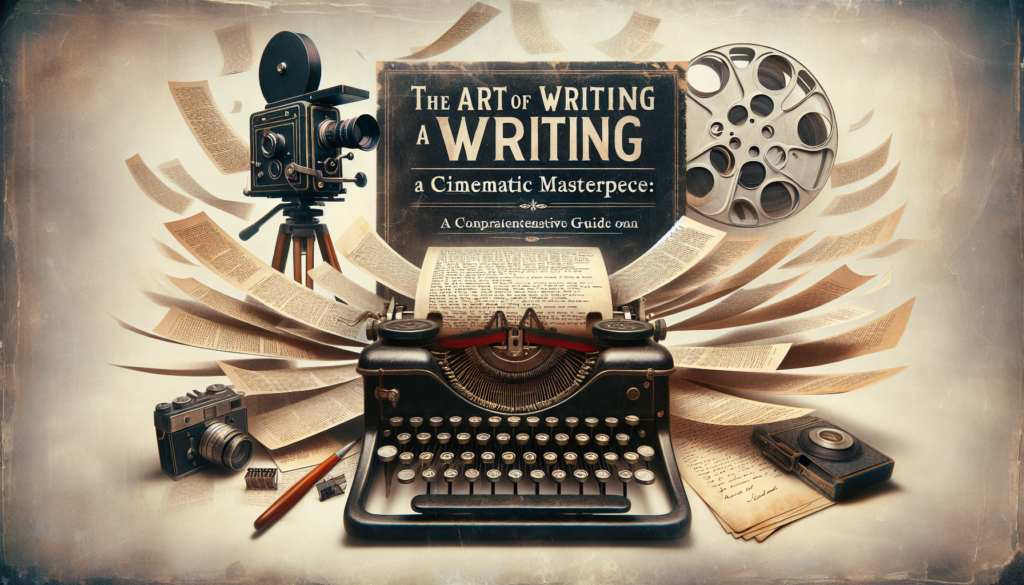A movie script, often referred to as a screenplay, is a profound blueprint for filmmaking, guiding the production crew and actors through the correlation of dialogues, settings, and actions. Writing a movie script can be a challenging and exhilarating undertaking. Professionals in the industry unanimously agree that movie scriptwriting requires diligence, creativity, and a proper understanding of the craft. Let’s explore the essential components one must grasp in this enigmatic yet rewarding realm of movie script writing.
The premise is undoubtedly the bedrock to begin your script. It’s a one- or two-sentence description that succinctly conveys what your film is about. It typically includes the central character, their conflict, and the setting. An example might be: “A young woman in ancient China disguises herself as a man to spare her elderly father from military service”. Once you craft your compelling premise, it gives you a guide that will refocus your mind whenever you stray off track during scriptwriting.
A movie script’s structure is its backbone and primarily consists of three acts; the setup, confrontation, and resolution. The first act sets the scene, introduces characters, and presents the initial drama. The second act builds on the conflict, creating a series of events and obstacles for the protagonist. The climax of the movie occurs here. The third act, the resolution, ties up loose ends and concludes the story arc to deliver a satisfactory end. Understanding and correctly navigating this three-act structure can make your script more compelling and connected.
Next, the emphasis should be placed on the establishment of multifaceted characters. Remember, your characters drive the story, hence, they should be distinctive, relatable, and intriguing. A well-created character has a backstory, emotional depth, specific traits, and goes through character development throughout the movie. Whether it’s a protagonist who sparks empathy or an antagonist who incites fear, the audience’s emotional connection with the characters is indispensable for the success of a film.
One of the unique aspects of a movie script is its reliance on visual storytelling. Unlike a novel where you have the freedom to dive into a character’s thoughts, a movie script conveys through visuals and dialogues. Every scene should serve to move the story forward, revealing something new about the character or situation. Show, don’t tell, is the golden rule in scriptwriting. Avoid long ends of dialogue where characters explain the plot. Instead, depict it through their actions or reactions.
Following the technical format of screenplay writing is non-negotiable. The industry standard script format includes elements like scene heading (slugline), action, character name, dialogue, parenthetical, transitions, and shot. There are software tools like Celtx, Final Draft and WriterDuet available, which format your script as you write. It ensures your script looks professional and is easily navigable for the readers.
Writing unexciting or irrelevant dialogues can weaken even the most profoundly developed plot or character. Hence, writing impactful dialogues is another essential aspect of movie scriptwriting. Remember, dialogues should resemble real conversation but without the mundane parts. They must reveal character traits, backstory, or plot points rather than direct exposition.
Lastly, it’s crucial to understand that scriptwriting is a process that involves multiple drafts. Even seasoned scriptwriters rarely get their script perfect in the first attempt. Rewriting is an indispensable part of the process. Seek feedback, make improvements, and don’t be afraid to cut out the parts that don’t serve the story or characters.
Movie script writing is a craft that demands understanding of story structure, character development, visual storytelling, and the precise industry standard format. Exploration of impactful dialogue writing and realising the value of rewriting are other essential facets to master. Scriptwriting is an art, and like any art, it requires practice, patience, and passion. Once you get a glimpse of your plot coming alive in the form of a movie script, the game becomes thrillingly worthwhile.


